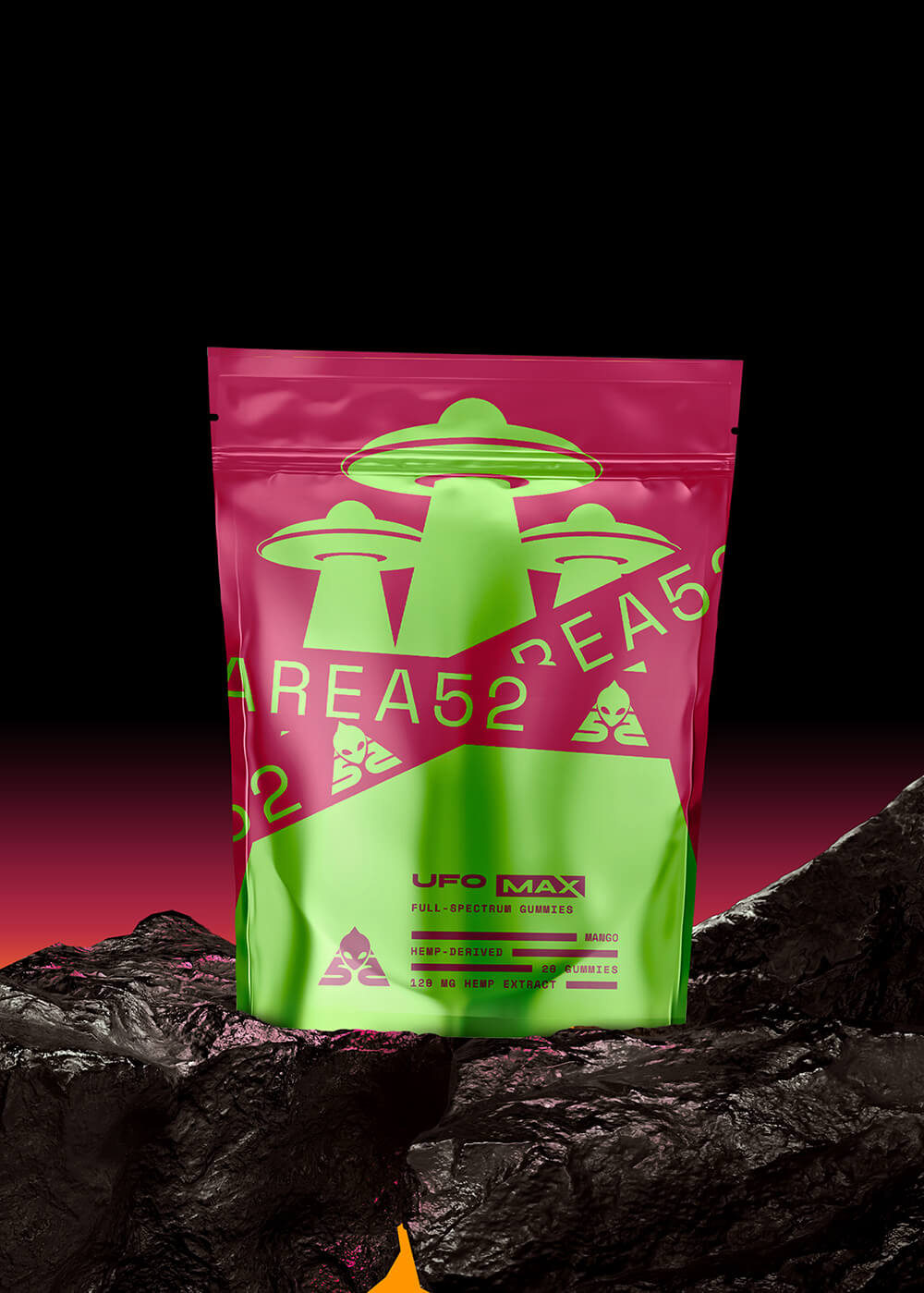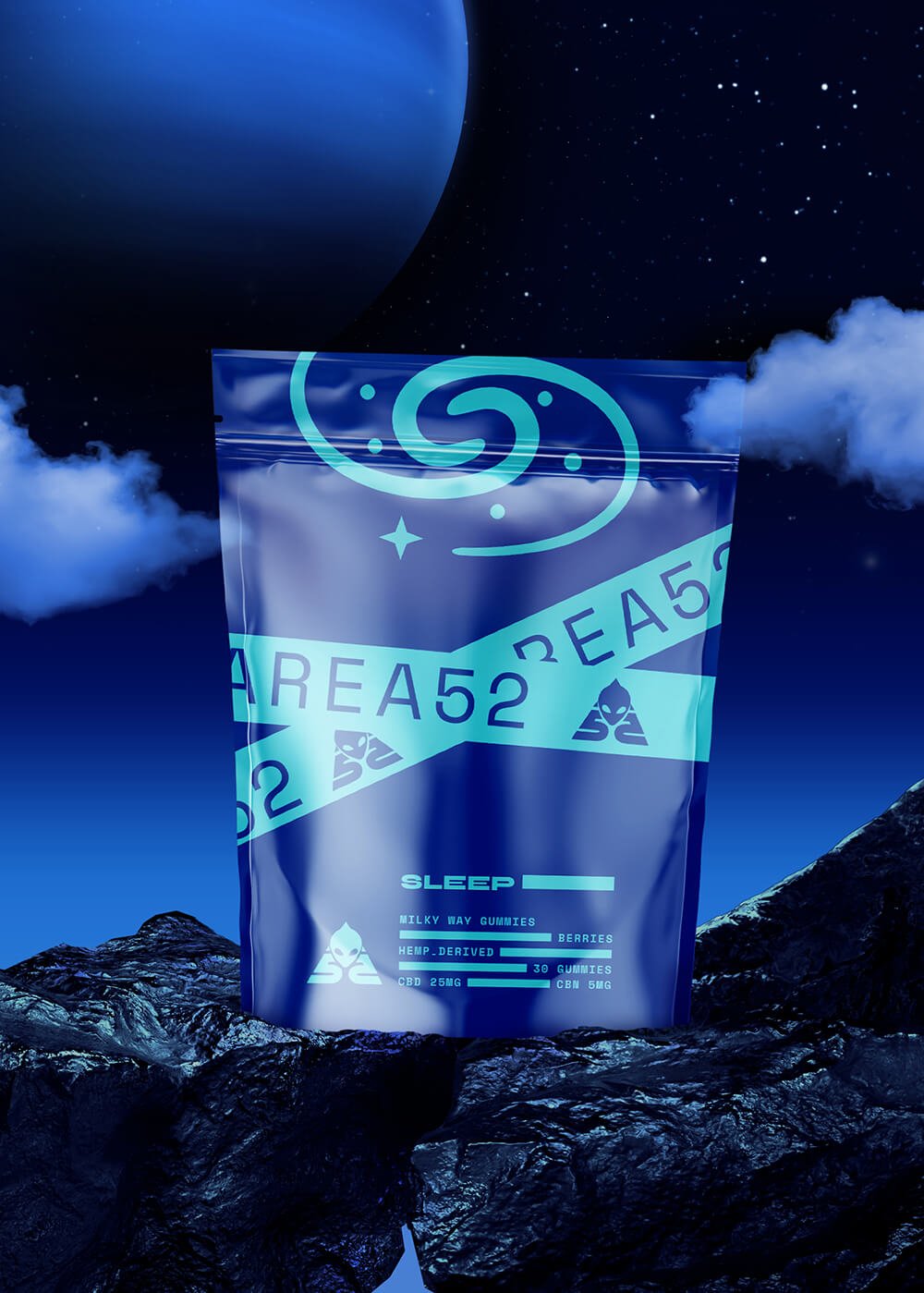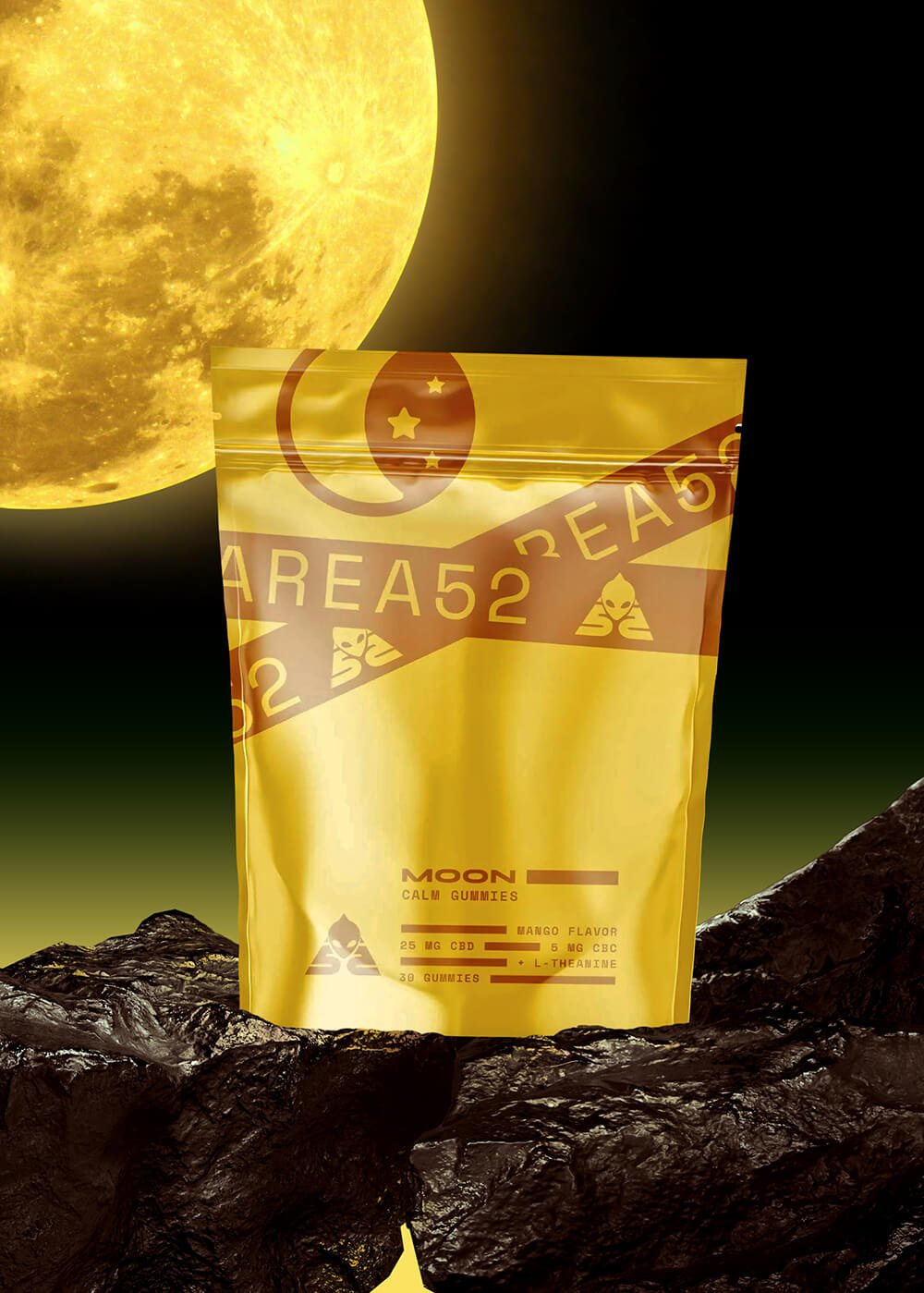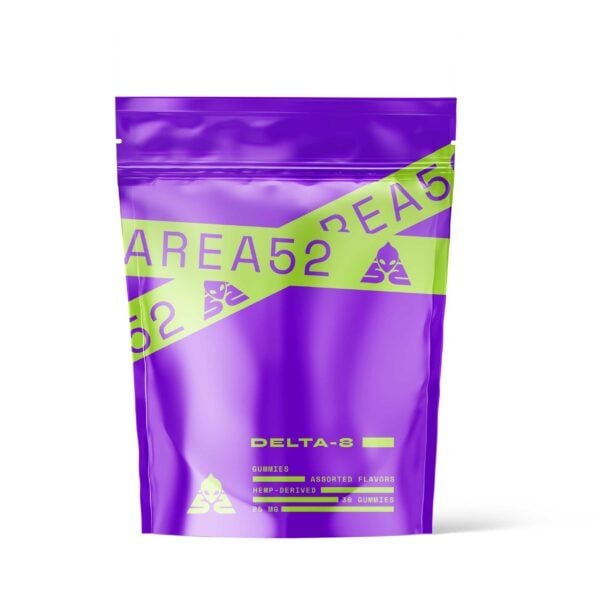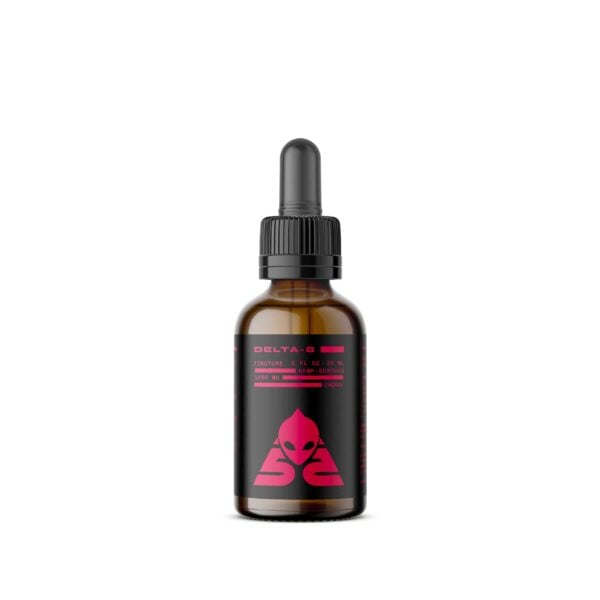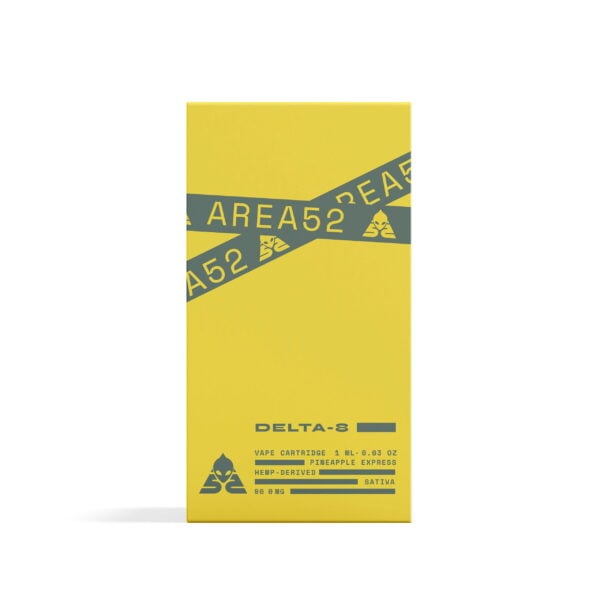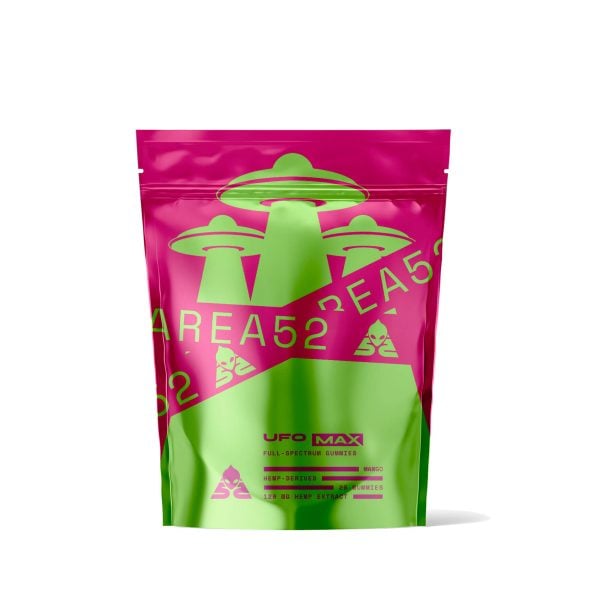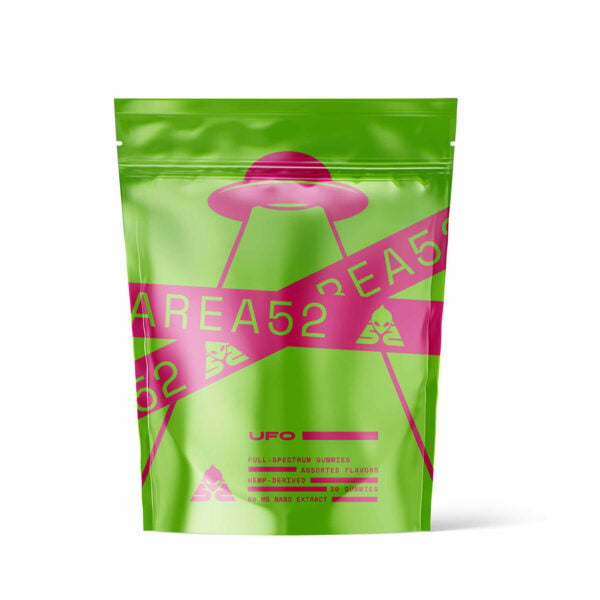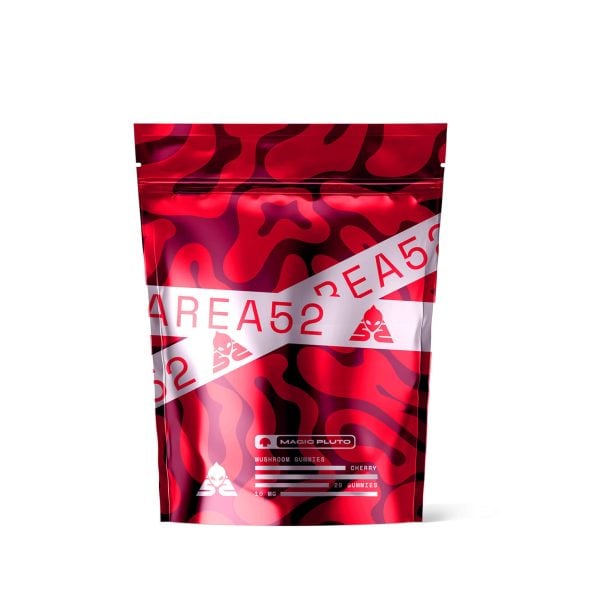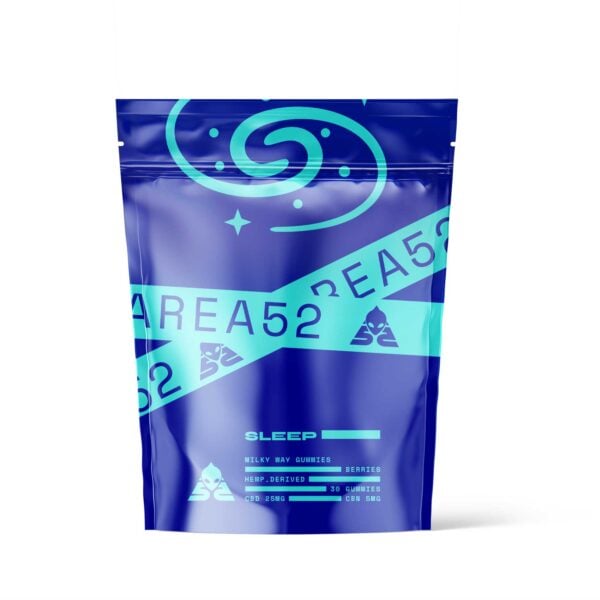Delta 8 THC in New Jersey: Is It Legal & Where to Buy in 2025?
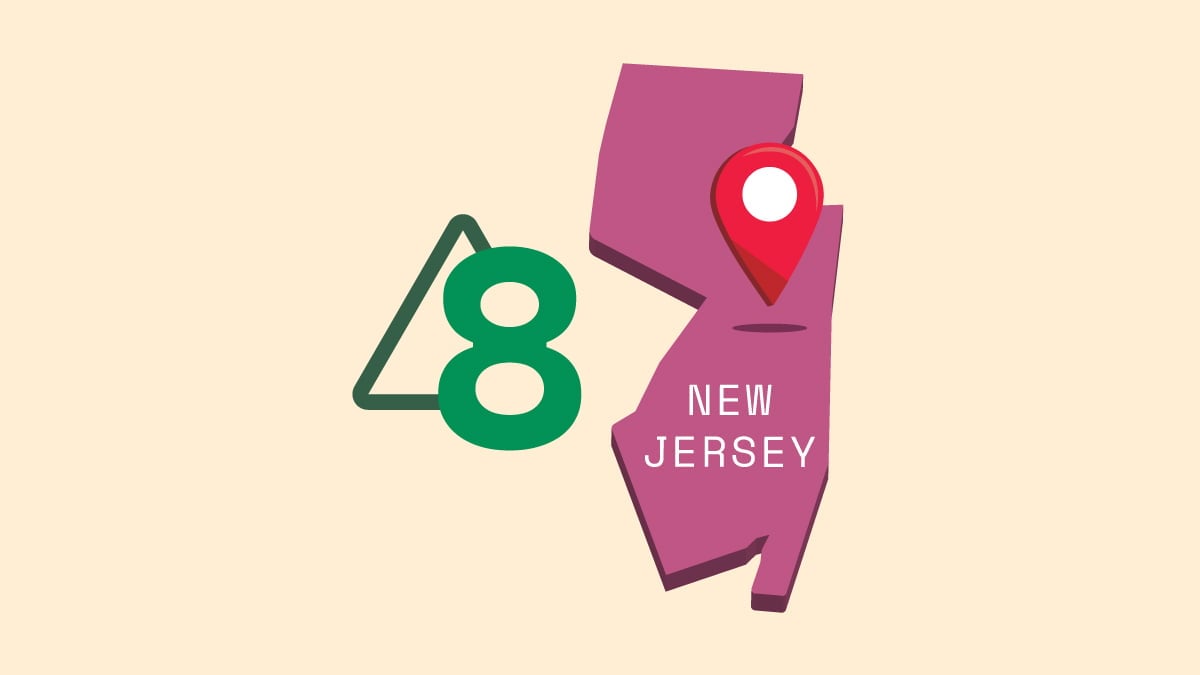
Delta 8 THC is legal in the state of New Jersey.
Delta 8 THC is a naturally occurring cannabinoid compound or derivative of both hemp and marijuana. With similar effects to delta 9 THC, this cannabinoid is becoming ever popular. But why, exactly?
In this read, we’ll be looking into the laws surrounding delta 8 THC in New Jersey, as well as providing you with all the information you need to make a safe and secure purchase.
Is Delta 8 Legal in New Jersey?
Yes, Delta 8 THC is legal in New Jersey. The New Jersey Hemp Farming Act aligns with the 2018 Farm Bill and gives residents access to delta 8 products.
Delta 8 THC is a naturally occurring chemical compound produced by the cannabis plant. If it’s sourced from the hemp plant, then it is federally legal under the 2018 Farm Bill [1]. The Farm Bill makes hemp and cannabinoids derived from it legal to produce, distribute, and consume, along with its terpenes, which are unsaturated hydrocarbons produced predominately in plants, including hemp and marijuana.
Cannabinoids such as CBD and delta 8 THC are legal because of this bill. Delta 9 THC, the primary psychoactive compound found in marijuana plants, remains illegal under federal law. However, delta 9 THC extracted from hemp is legal in levels below 0.3%.
Some states contradict the federal law and make certain hemp derived cannabinoids with psychoactive effects, like delta 8 and delta 10, illegal under local legislation.
Luckily, New Jersey isn’t a state that bans any hemp-derived cannabinoids, and the sale, distribution, and consumption of these cannabinoids are unrestricted to some degree.
New Jersey has also legalized cannabis for medical use. And, as of February 2021, the state has decriminalized marijuana possession and legalized it for recreational use. The governing body has set out pathways to regulate the sale of recreational cannabis, and adult-use sales officially launched in April 2022.
The 2018 Farm Bill in a Nutshell
Of note, cannabis plants are flowering plants that come in many varieties. You have Cannabis indica, Cannabis ruderalis, and the Cannabis sativa plant, which hemp and marijuana both belong to.
When the 2018 Farm Bill was signed into law, it legalized industrial hemp and hemp products. This means that the hemp plant (Cannabis Sativa L) and all its parts are now legal, including but not limited to its flowers, leaves, stalks, stems, and seeds thereof.
This federal law also legalized hemp derived substances, from cannabinoids and isomers to acids and other hemp derived cannabinoid extracts.
Any hemp plant or cannabis material, for that matter, containing more than the legal THC limit is considered marijuana and federally illegal. Marijuana remains a controlled dangerous substance at the federal level.
The 2018 Farm Bill also created a loophole that “technically” legalized any psychoactive cannabinoid compound found in hemp, such as delta 8 and delta 10, allowing hemp derived cannabinoid retailers to legally sell these intoxicating products.
However, some state lawmakers see these hemp-derived THC isomers as artificially derived cannabinoids and ban their use. But compared to synthetic cannabinoids though like K2 and Spice, which are structurally unrelated cannabimimetic compounds, delta 8 and other THC isomers are naturally produced by the cannabis plant, although in small quantities.
To get a higher yield, we convert hemp-sourced CBD into delta 8 THC through a chemical process called isomerization. The delta 8 we see on the market may not have come directly from the plant and did not undergo traditional food preparation techniques, but it’s still a natural compound seen in nature.
While many states allow delta 8, some consider it synthetically derived and poses significant public health and safety risks. They have either fully banned or placed very strict regulations on this psychoactive cannabinoid compound.
Where to Buy Delta 8 THC in New Jersey
Delta 8 THC is federally legal and unrestricted in the state of New Jersey.
It’s easy to acquire and can be found for sale over-the-counter in certain vape shops, head shops, and dispensaries. However, the best place to source delta 8 THC from is the internet.
The internet is a powerful tool. It allows you to look into companies in-depth and view their reviews, product descriptions, and most importantly, the third-party lab results for their delta 8 THC products.
The Benefits of Ordering Delta 8 THC Online:
- Better pricing & higher seasonal discounts
- Ability to read reviews from past customers before you buy
- Third-party lab tests accessible through product pages
Shop Online For the Best Delta 8 THC Products in New Jersey
Watch out for “fake” delta 8 THC companies that pop up on the internet now and then. These companies sell products that contain little to no delta 8 THC or contain dangerous chemicals that may harm the body if ingested.
Although we believe that shopping for delta 8 THC online is the best way to purchase this cannabinoid, you must exert some due diligence. Make sure you research the company and view their third-party lab results before parting with your money.
Is Delta 10 THC Legal in New Jersey?
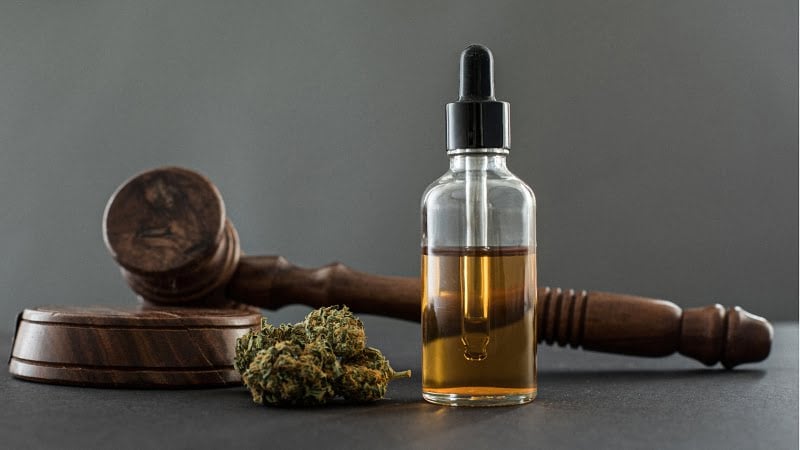
Delta 10 THC is also a derivative of hemp. Therefore, it’s legal federally under the 2018 Farm Bill. Because New Jersey doesn’t have any state laws that conflict with the Farm Bill, delta 10 THC is unrestricted, as is delta 8 THC.
If you’re interested in trying delta 10, make sure that you only buy from trusted vendors that sell hemp derived cannabinoid products with certificates of analysis. A reputable vendor sends samples of its products to a third-party cannabis testing facility to ensure safety, potency, and quality.
Accredited labs test usable cannabis products to make sure that each cannabinoid or chemical substance derived from the material contains the stated potency and that they’re free from potentially harmful byproducts.
Do I Need A Medical Card in New Jersey To Order Delta 8 THC?
No, you don’t need a medical card to purchase delta 8 THC or any other hemp-derived cannabinoid extracts in the state of New Jersey.
It can be purchased freely over the counter and online. However, the state does restrict the sale of delta 8 THC to minors (people under the age of 21). Under federal law, there are no age restrictions for the cannabinoid.
However, the state of New Jersey requires all companies selling the cannabinoid to verify the age of their customers before a sale is made. This goes for over-the-counter purchases and online transactions. Any company that doesn’t do this is committing a state crime.
Most states in the United States implement these age restrictions, so most reputable delta 8 THC distributors will ask for age verification regardless of location.
Delta 8 Vapes & The PACT Act
Although federally, there are no laws that restrict the sale of delta 8 THC, most states restrict the sale of the cannabinoid to minors, as mentioned above.
Alongside these state restrictions, it’s now illegal to sell any vape products to people under the age of 21. The PACT (Prevent All Cigarette Trafficking) Act requires all companies selling vape-related products to verify age before a purchase is made.
This goes for any vape products regardless of whether they contain delta 8 THC or not.
Any vendor that doesn’t ask for age verification upon attempted purchase of vape liquids, vape pens, or other related products is committing a federal crime.
A company that breaks both federal and state laws shouldn’t be trusted. If you go to order delta 8 vape products from a vendor and don’t get asked for age verification, you shouldn’t go through with the purchase.
A vendor that doesn’t follow the PACT Act is committing a blatant crime and is likely cutting corners in other parts of their business. They may be selling fake delta 8 THC vape liquids, combining inferior ingredients in their products, or failing to deliver their products at all.
Avoid any company that doesn’t abide by the PACT Act and local legislation to avoid disappointment. A reputable company will follow laws closely and provide complete transparency to its customers.
What’s The Difference Between Delta 8 THC & Delta 9 THC?
Delta 8 THC and delta 9 THC are extremely similar on a molecular level. The only thing that divides them is a singular double bond.
Legally, the two cannabinoids are divided also. Delta 8 THC is legal under federal law, thanks to the 2018 Farm Bill. However, delta 9 THC is still currently federally illegal.
Both cannabinoids are in the same family (tetrahydrocannabinol), and they interact with the same receptors in the brain. Therefore, they have similar effects on the body, and both impair the user. However, delta 8 THC is less intense than its federally illicit cousin delta 9.
The psychoactive effects of delta 8 THC are desirable, especially if you find delta 9 THC too potent. Users can experience the relaxing effects of THC without some of the negative side effects that delta 9 causes.
When delta 8 THC is consumed, users can experience the same calming benefits without experiencing paranoia, elevated stress, and extreme couch-lock. It’s easier to go about daily life when using delta 8 THC, whereas delta 9 THC can affect your productivity and energy levels.
Is Delta 8 THC Natural?
The word “natural” is thrown around a lot in the holistic health and cannabinoid space.
“Natural” is a commonly used word that companies implement to market their products. When this word is used in a product description, it makes the consumer feel safe and secure that the product is harmless and beneficial to the body.
Legally, the word natural isn’t regulated. A company can use this word to describe a product, even if it doesn’t derive from a natural source. This is why you should take this word with a grain of salt.
Delta 8 THC is made from natural sources and occurs in nature without human intervention. Because of this, it’s unlikely regulators consider delta 8 synthetics. However, the DEA has never made an official statement on this.
How to Use Delta 8 THC
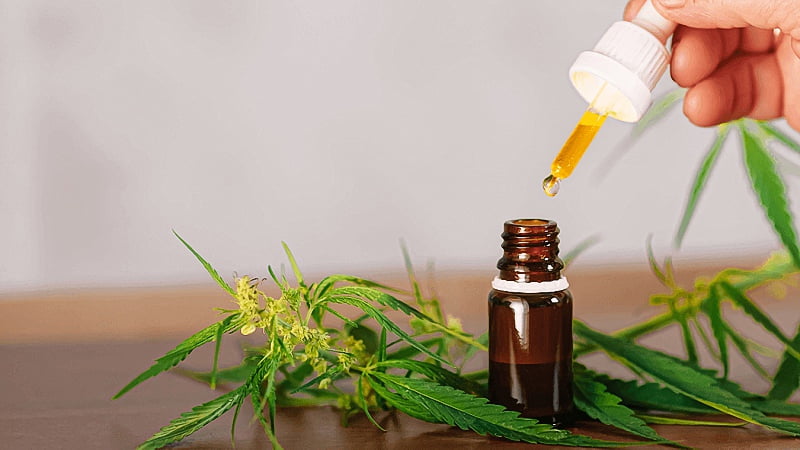
There are several ways in which delta 8 THC can be used. Similar to CBD, delta 8 THC is available in many different consumption formats.
The cannabinoid can be found in vape liquids, edibles, and tinctures. These three consumption formats are the most popular due to their ease of use and convenience. However, each one is different in terms of onset times, bioavailability, and the way they’re used.
Delta 8 THC isn’t as potent as delta 9 THC, so you’ll need to consume higher doses in the most bioavailable ways. Because of this, high-potency products provide the best value for money.
In this section, we’ll be outlining the three most popular consumption formats, so you can decide what will work best for you and your situation.
1. Delta 8 THC Vapes
Vaping delta 8 THC is a popular method of consumption because the cannabinoid becomes highly bioavailable when inhaled. Delta 8 THC vapes are made with a concentrated delta 8 extract and cannabis-infused terpenes for flavor.
When this solution is heated in a vape pen, it produces a vapor that can be inhaled. Upon inhalation, the effects kick in quickly but don’t last particularly long compared to the other consumption formats on this list.
Delta 8 THC vapes are great if you’re looking for fast and effective relief with the most intense effects.
2. Delta 8 THC Tinctures
Delta 8 THC tinctures come next on the list in terms of bioavailability. Tinctures suspend delta 8 THC extract in a carrier liquid (usually MCT oil) and are applied under the tongue using a dropper.
The cannabinoid is sublingually absorbed this way — meaning it’s absorbed through the tissue under the tongue. Although the onset of effects takes slightly longer than when delta 8 THC is inhaled, the effects last much longer.
3. Delta 8 THC Edibles
Delta 8 THC edibles come in many forms, but the most common are gummies. They are convenient, easy to use, and provide a tasty way to supplement with delta 8 THC.
When delta 8 THC edibles are consumed, they must pass through the digestive system to take effect. The delta 8 is absorbed in the digestive tract, so it can take a while to notice the effects. However, once the effects kick in, they last for a longer time.
Edibles are perfect if you’re looking for a tasty, casual, and convenient way to consume delta 8 THC accurately.
Is Marijuana (Delta 9 THC) Legal In New Jersey?
Yes, marijuana is legal in the state of New Jersey for both medical and recreational use. Medical cannabis was legalized in 2013 and recreational cannabis in 2021.
If you’re dealing with chronic health issues, know that you have access to any medical cannabis product manufactured and sold in the state by any licensed alternative treatment center deemed compliant by the state.
The state has a highly regulated medical cannabis program that these alternative treatment centers must follow.
New Jersey laws require that all medical cannabis cultivated in the state must be sourced from licensed medical cannabis cultivators. The products should also be processed by accredited medical cannabis manufacturers.
In addition to these, medical cannabis products dispensed to patients should have undergone rigid testing by a medical cannabis testing laboratory to ensure product compliance and safety. Certified third-party labs test medical cannabis products, making sure they’re free from pathogens and toxic residues.
Adults of legal age (21 years) have access to a wide variety of legal cannabis products, from flowers and pre-rolls to more psychoactive cannabis products containing higher THC levels, such as cannabis extracts and cannabis resins.
However, it’s important to stick to the limits imposed by New Jersey regulators. Exceeding the possession limits can still carry strict penalties. These include:
- Possession of 6 oz or less of marijuana
- Possession of 17 g or less of cannabis concentrates and hash
New Jersey has strict regulations when it comes to packaging.
The state requires its cannabis retailers issued licenses as well as hemp derived retail retailers to comply with the Poison Prevention Packaging Act to protect children from accidental ingestion. The packaging must have clear labeling and be contained in liquid nicotine containers that are opaque, child-resistant, and tamper-resistant.
Related: Where is marijuana legal in the United States?
What’s The Future of Delta 8 THC in New Jersey?
The future of delta 8 THC in New Jersey is bright. The state does not restrict the sale, consumption, and distribution of the cannabinoid. These laws don’t seem to be changing anytime soon.
We can expect that delta 8 THC will remain legal both federally and under state law in New Jersey for the foreseeable future. Alongside this, the future of cannabis and delta 9 THC is also bright in the state and countrywide.
Cannabis is currently available for medical use in New Jersey, and it has been decriminalized and legalized for recreational use. Soon, we should see more dispensaries for medical and recreational marijuana appearing in the state as cannabis laws become more relaxed and regulated.
New Jersey is joining the many other “green states” in the United States. We can only expect more and more states on the green list in the future, eventually leading to the federal legalization of delta 9 THC.
For now, delta 8 THC can be purchased legally for recreational use, and marijuana has also been legal for recreational use since 2021.
FAQs on Delta 8 and Other Cannabinoids in New Jersey
Below is a short list of questions and answers about delta 8 and other popular cannabinoids in New Jersey.
1. Is THC Legal in All 50 States?
It depends on the source. THCs derived from marijuana are illegal since marijuana remains a controlled substance under federal laws.
However, usable hemp derived cannabinoid items are federally legal in all 50 states, including delta 9 THC and its isomers, provided the THC level doesn’t go over 0.3% on a dry weight basis.
2. Is Delta 8 Legal in All 50 States?
Yes. hemp derived cannabinoid products containing delta 8 are technically legal in all 50 states.
However, several states have decided to either pass legislation or make executive orders to regulate or ban hemp derived cannabinoids that produce intoxicating, psychoactive effects.
That said, always check the local laws before buying hemp derived cannabinoids manufactured and sold in your state.
3. Is Delta 8 Legal in New Jersey?
Hemp derived products manufactured and sold in New Jersey are legal, so long as they comply with state and federal laws.
The state has established legislation that regulates hemp production, especially when it comes to products containing psychoactive hemp derived cannabinoid resin and extracts.
4. Can You Order Delta-8 Online in NJ?
You can order delta 8 products online and have them shipped to your home in New Jersey. Just make sure you buy from reputable vendors that regularly have their products tested by third-party labs.
5. Can I Take Delta 8 on an Airplane?
There should be no issues flying or crossing state borders with products derived from hemp. However, because some delta 8 products look too similar to marijuana and several states have banned their sale and use, it’s best to leave your products at home to avoid problems with the law.
You can simply order new ones online or buy in-store when you get to your destination state, provided, of course, that it’s legal there.
6. Is Delta 10 Legal in New Jersey?
Delta 10 is legal in New Jersey. The laws that cover delta 8 also apply to delta 10 products. Just make sure that it comes from hemp with less than 0.3% THC to avoid issues.
7. Is THCA Legal in New Jersey?
THCA is also legal in New Jersey. Adults 21 years and older can buy THCA products online and have them shipped to their location.
8. Is CBD Illegal in NJ?
Both hemp and marijuana sourced CBD is legal in New Jersey. The state legalized medical cannabis in 2013 and recreational cannabis in 2021.
9. Are THC Beverages Legal in NJ?
Only adults of legal age, 21 years and older, have access to beverages that contain THC in New Jersey. The New Jersey Governor, in September 2024, signed a law that strictly prohibits companies from selling and distributing THC beverages to people under the age of 21.
10. Can Employers Test for THC in NJ?
Yes, employers can conduct random drug testing at the workplace, especially when you work in a safety-sensitive environment like the healthcare and transportation industries. However, they cannot use the results against employees who used cannabis outside of the workplace. But if it’s proven that the employer used cannabis at the workplace, then employers can legally take action.
